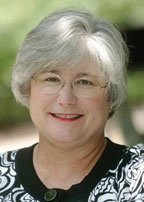 The community is buzzing about a newly published book, “Am I a Jew?” written by Theodore Ross, an author from New York. It’s been out a month or so already. I wasn’t terribly interested in it, and it just sat on my desk waiting to be given to one of our book reviewers. However out of the blue, just before Yom Kippur, I got some phone calls about it. Then I was intrigued.
The community is buzzing about a newly published book, “Am I a Jew?” written by Theodore Ross, an author from New York. It’s been out a month or so already. I wasn’t terribly interested in it, and it just sat on my desk waiting to be given to one of our book reviewers. However out of the blue, just before Yom Kippur, I got some phone calls about it. Then I was intrigued.
The book focuses on different types of Judaism, one being Classical Reform Judaism. Ross claims (I didn’t confirm the facts myself) that there are only 15 such congregations in the United States. He hand-picked our own Rabbi Jacques Cukierkorn as the expert on that subject.
He came to Kansas City to interview Rabbi Cukierkorn twice about the topic. According to the book, he even stayed at his home. I am deeply disturbed by what he wrote about Classical Reform Judaism and the New Reform Temple in particular.
In my opinion, the chapters on Classical Reform Judaism are not really about Classical Reform Judaism at all. He spends very little time describing the difference between Classical Reform Judaism and what we typically refer to as simply Reform Judaism. Instead, I see it as a not-so-flattering depiction of Rabbi Cukierkorn, the former rabbinical leader of The New Reform Temple who now heads up the year-old Temple Israel. In doing that, these chapters also become a not-so-flattering, and I believe skewed, view of the Jewish community in Kansas City as a whole.
I have not interviewed either the author or any of the parties quoted in this book. I believe it would be a waste of my time as I would probably get typical comments such as “I stand by what I wrote,” and “I was misquoted.” As a journalist I do have to wonder why Ross chose to publish the information he gathered about New Reform from Rabbi Cukierkorn after he met with the rabbi the first time. At that time the relationship between the rabbi and the congregation had become a rocky one. In my opinion that’s when he should have walked away and chosen another congregation and rabbi to profile. By not doing so, he implies that the relationship between this rabbi and this congregation represents a typical rabbi-congregational relationship for such parties in Classical Reform congregations. I certainly believe this is not the case.
By the time Ross came to Kansas City a second time, Rabbi Cukierkorn’s relationship with NRT’s board of directors had deteriorated to the point of not renewing the rabbi’s contract. The two parties negotiated a separation agreement. Did the author really think he was getting an accurate depiction of a Classical Reform congregation when he discovered that all the parties involved were effectively right in the middle of a “divorce?” As a journalist, has he never had to walk away from an interview because he wasn’t getting the information he needed?
At this point you might be saying, but The Chronicle mentioned all of these things in its newspaper as well. Yes, we did. It’s something we have agonized about, but we see it as our duty to report the news in our community. But that news certainly does not represent what is going on in Classic Reform congregations.
Rabbi Cukierkorn isn’t off the hook here either, by any stretch of the imagination. He was speaking to a journalist who was writing a book, so he should have been more careful about what he said and the words he chose to use. Clearly he was unhappy with his situation and many people involved in it. But as my mother, of blessed memory, used to say to me on a regular basis, “If you don’t have anything nice to say, don’t say anything at all.” I hope he has learned this valuable lesson.
As I read on Kol Nidre “words matter, words can hurt, reputations matter, gossip hurts.” I am not and have never been a member of The New Reform Temple. But as a member of the Kansas City Jewish community I am hurt by this book. I don’t want people across the country thinking this is how the Kansas City Jewish community speaks to others or speaks about others. It simply isn’t an accurate depiction of who we are. Period.
Don’t buy the book. If you want to know the author’s personal story, read it online. He’s told it in plenty of interviews. The rest isn’t worth your valuable time.


